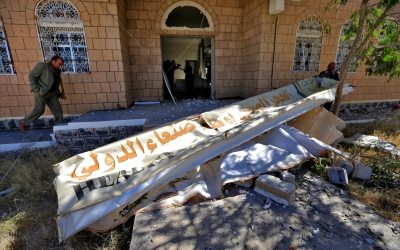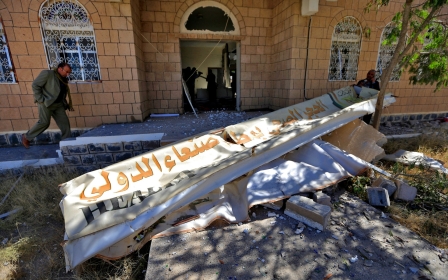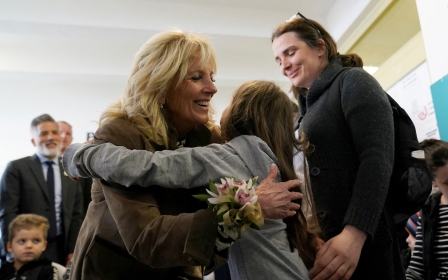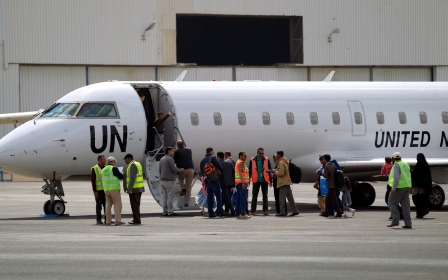Yemen: First commercial flight in six years leaves rebel-held Sanaa
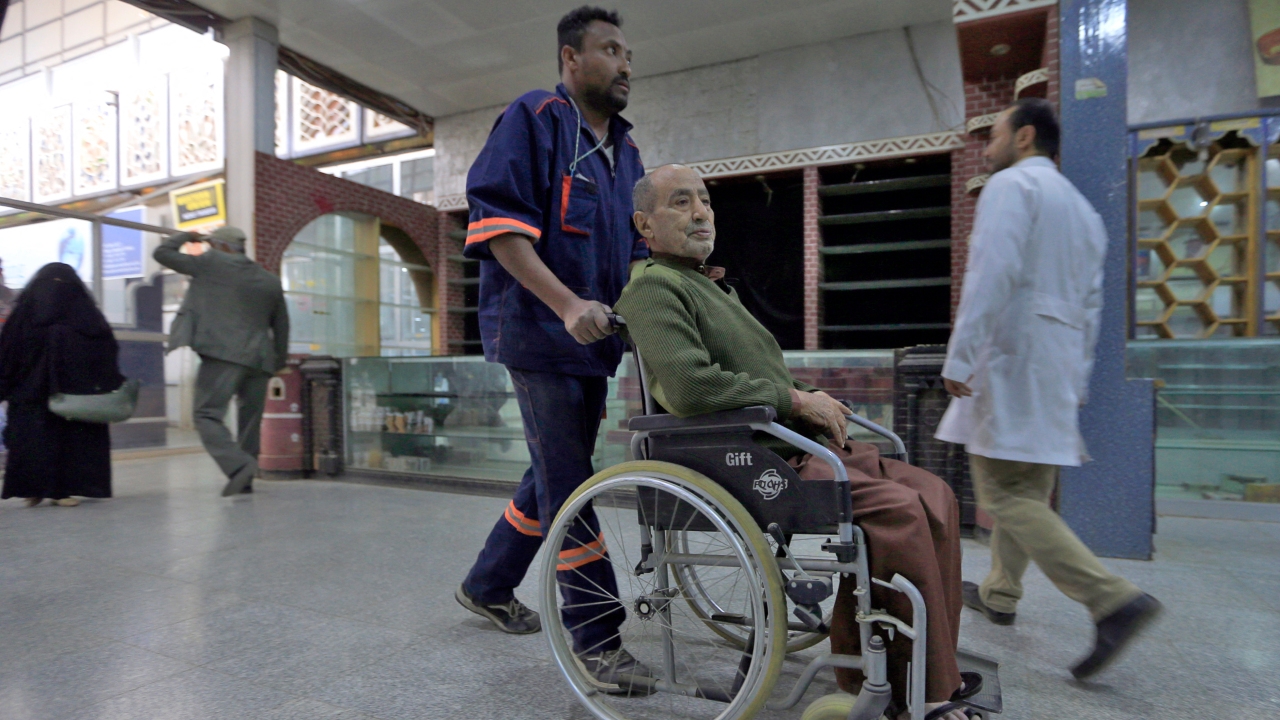
The first commercial flight in nearly six years took off from Yemen's rebel-held capital on Monday, a possible major step in the hope of advancing a fragile peace process.
The Yemenia plane carrying 126 passengers, including hospital patients needing treatment abroad and their relatives, took off from Sanaa just after 9am and later landed in the Jordanian capital Amman.
"We have waited for this trip for three years," Ismail al-Wazzan told Reuters before boarding the flight with his father sitting on a wheelchair.
"Because of my father's health condition, we couldn't take him by land to Aden. Praise be to God, the relief has come."
Before leaving, the plane with red-and-blue tail livery taxied through an honour guard of two fire trucks spraying jets of water.
New MEE newsletter: Jerusalem Dispatch
Sign up to get the latest insights and analysis on Israel-Palestine, alongside Turkey Unpacked and other MEE newsletters
"The take-off of the first commercial flight from Sanaa airport in almost six years is a stepping stone towards a lasting peace for Yemen," Erin Hutchinson, the Norwegian Refugee Council (NRC)'s country director in Yemen, said in a statement.
Sanaa's airport has been closed to commercial traffic since August 2016 because of air strikes by the Saudi Arabia-led military coalition, which is fighting the Houthi rebels.
Yemen, the Arab world's poorest country, has been wracked with war since the coalition launched its intervention in support of the western-backed government in 2015, a year after the Houthis seized control of the capital.
According to UN figures, more than 150,000 people have died in the violence, and millions have been displaced, creating the world's worst humanitarian crisis.
A truce has been in place since 2 April, coinciding with the start of the Muslim holy month of Ramadan.
Five days after it took effect, Yemen's Riyadh-based president Abd Rabbuh Mansour Hadi also handed his powers to a Saudi-backed leadership council tasked with holding peace talks with the rebels.
Houthi-issued passports accepted
Resuming flights from Sanaa, reopening roads to the rebel-besieged city of Taiz, and allowing fuel tankers into the Houthi-held port of Hodeidah - a lifeline for Yemen - were all part of the truce agreement.
While fuel tankers have docked in Hodeidah and flights have now resumed from Sanaa, the main routes into Taiz remain cut off, AFP reported.
The inaugural flight under the truce had been planned for 24 April from Sanaa to Amman but had to be scrapped after Yemenia said it did not receive the necessary permits.
Each side blamed the other for the hold-up, while UN Special Envoy Hans Grundberg called for a quick resolution to the impasse.
The NRC said at the time that the inability to operate commercial flights out of Sanaa had stranded "tens of thousands of medical patients" seeking treatment abroad.
Last week, Yemen's government said it would allow citizens in rebel-held areas to travel on Houthi-issued passports, removing a barrier to the flights.
The government has agreed "during the armistice period to allow the Yemeni people who were held hostage by the [Houthis] the opportunity to travel through Sanaa airport, with passports issued by Houthi-controlled areas," a Yemeni official told AFP.
The government is "not responsible for any data contained" in the Houthi-issued documents, said the source, who spoke on condition of anonymity since they were not authorised to speak to the media.
Tens of thousands of patients in Yemen are on a waiting list seeking to travel abroad.
In Sanaa's main hospital, others had to wait for the next flight expected on Wednesday.
Mohammad al-Hababi's son could not make a booking despite his critical condition.
"This is my son Ahmad. On 10 April, we took him to a hospital in Dhamar, then to the German hospital in Sanaa, he has been in a coma for more than a month," Hababi told Reuters.
Middle East Eye delivers independent and unrivalled coverage and analysis of the Middle East, North Africa and beyond. To learn more about republishing this content and the associated fees, please fill out this form. More about MEE can be found here.



